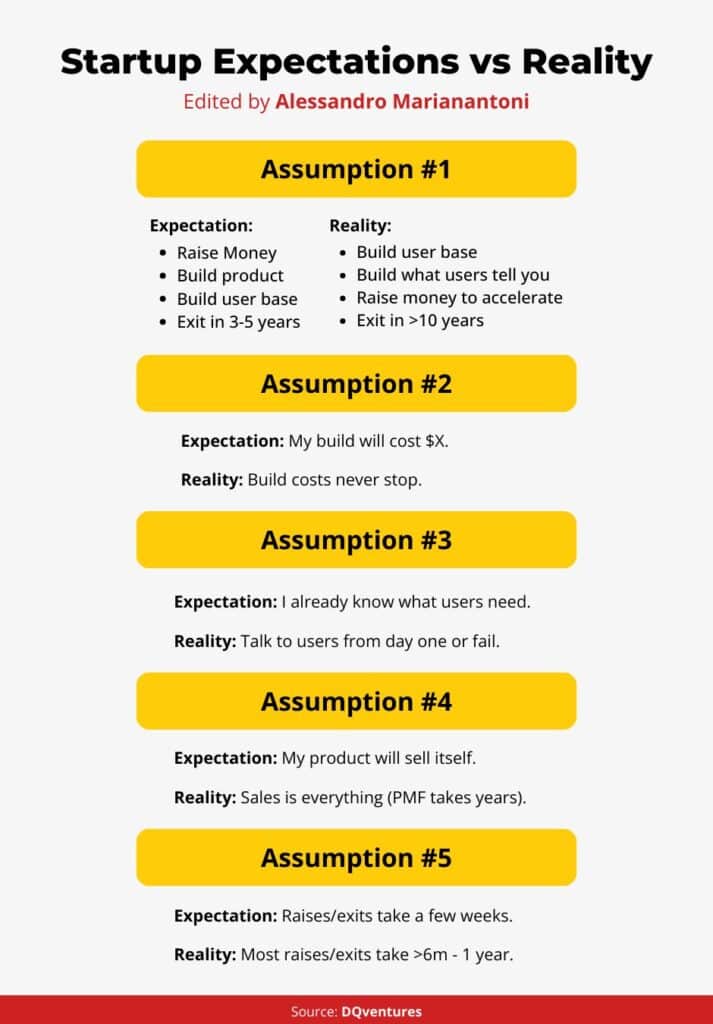
Embarking on the entrepreneurial journey is an exhilarating experience, filled with dreams of rapid success and groundbreaking achievements. However, for many first-time founders, the path to realizing their vision is often clouded by misconceptions and unrealistic expectations.
As investors, it becomes imperative to impart the wisdom gained through experience, offering a reality check to guide these aspiring entrepreneurs on the road to success.
1. The Illusion of Rapid Success
- Many founders think they can reach their vision within 3-5 years.
- The reality is that it will likely take 10 years of commitment.
The enthusiasm and drive of first-time founders are commendable, but it’s crucial to dispel the myth of overnight success. History showcases that some of the most successful companies took years, even decades, to reach their zenith. Jeff Bezos, the visionary behind Amazon, invested 27 years into building the e-commerce giant. Similarly, Spotify’s founders dedicated 17 years to shaping the music streaming platform. It’s a marathon, not a sprint.
2. Understanding User Needs
- Many founders feel like they know exactly what users want.
- But the top reason startups fail is because of no market need.
Confidence in one’s vision is essential, but success hinges on meeting a genuine market need. CB Insights reports that a staggering 42% of startups fail due to a lack of Product-Market Fit (PMF). First-time founders must prioritize understanding their target audience, adapting to evolving demands, and validating their ideas to ensure they are addressing a real problem.
3. The Fundraising Myth
- Many founders think they can raise funds before they run out.
- Fundraising is a full-time job that can take up to 2 years.
Securing financial backing is a critical aspect of startup growth, but it’s not a quick fix. Fundraising is a time-consuming process that demands patience and persistence. Carta data suggests that founders should plan for approximately 1,000 days of cash runway between funding rounds. First-time founders often underestimate the commitment required to secure investment, risking their company’s financial stability in the process.

Conclusion
First-time founders are not inherently destined for failure. On the contrary, with the right background, commitment, and skill, they can be excellent investments. However, as investors, it is incumbent upon us to set realistic expectations, guiding these entrepreneurs through the hurdles of the startup landscape.
By dispelling myths about rapid success, emphasizing the importance of understanding market needs, and highlighting the challenges of fundraising, we pave the way for a new generation of successful and resilient entrepreneurs. As the startup ecosystem evolves, the role of experienced investors becomes increasingly crucial in shaping the future of innovation and business.



